“All of my writings address human desires and aspirations with a reverence for facts and principles.”
Diverse and Parentless at the Turn of the Century: RAGTIME Revived at Toby’s
The America depicted here is a place of quests: Father’s for the unknown horizon, Tateh’s for a land where he and his daughter can prosper, Coalhouse’s for reuniting with Sarah and raising his son in a world where blacks are regarded and treated as equals. To these quests might be added two more: Younger Brother’s for some ideal he can build a life around and Mother’s, a quieter one, to nurture a family, whatever contours her decency and generosity cause it to assume. And all of these quests are played out among the novelties and sensations of an exuberant American decade: among the things which will figure in the plot are Henry Ford’s Model T, J.P. Morgan’s library of priceless incunabula, the notorious charms of uber-courtesan Evelyn Nesbit, and the antics of escape artist Harry Houdini.
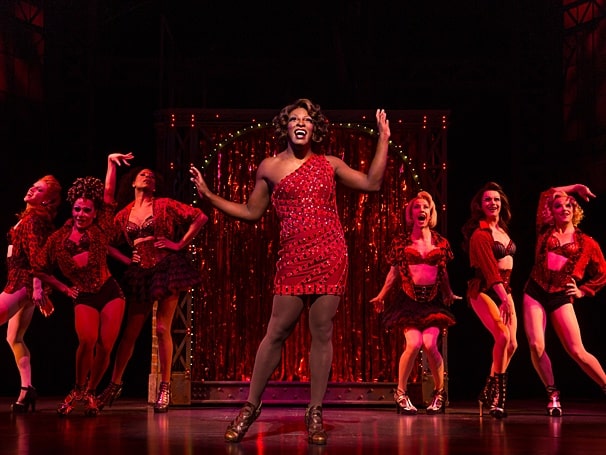
Kicking at the Hippodrome: Nearly Perfect KINKY BOOTS
Take the basic problems presented in Brassed Off, Local Hero, and The Full Monty, i.e. the deindustrialization of Britain and resulting working-class unemployment, observe those problems with the wry humor of those films, add drag performers from La Cage Aux Folles, a sensitive trans person of color from The Crying Game, a “love thyself” theme from Hairspray, and a romance between factory boss and subordinate straight out of Pajama Game. Stir well, and voilà!, you have a tale of a band of shoe workers and their manager who resist the oblivion that awaits British manufacturing by switching from ordinary cobbling to fabricating a line of sexy boots for drag performers
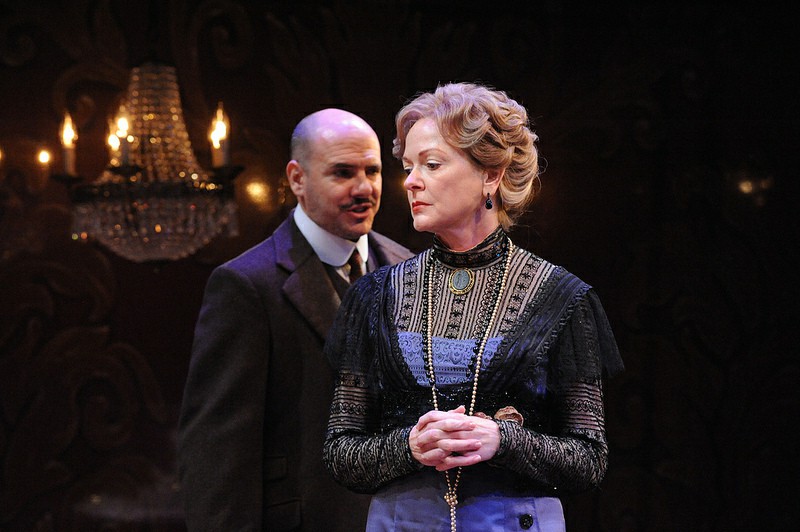
Priestley’s Savage AN INSPECTOR CALLS Shows Continued Topicality At Everyman
I was struck by how much of the subject-matter of An Inspector Calls resonated today, despite the play being a product of the 1940s set just before the First World War. For instance, there is Priestley’s approach to what we now call a “living wage.” A complementary up-to-date theme is the frequently unconscious nature of privilege. If Noel Coward and Bertolt Brecht had collaborated, they might have given us this very play.

Personality Disorders and Personal Worlds: WORLD BUILDERS at Contemporary American Theater Festival
Whitney and Max have been compelled by their mental disorders to turn their backs on the real world, and on the actual human connections available to them with friends and family, to obsess instead about imaginary worlds of their own making. But for each of them, their world, however artistic and creative, is also of a place of some danger. When medicine begins to cure them, they must compare the value of a sane life with love but without creativity and an insane life with creativity but without love.
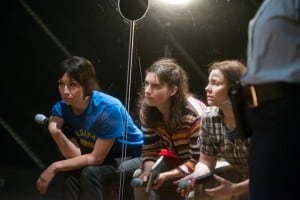
The Messy But Effective Premiere of WE ARE PUSSY RIOT at the Contemporary American Theater Festival
The success of PUSSY RIOT rests upon what author Barbara Hammond gets right. This includes a recreation of an actual Pussy Riot provocation/performance; excerpts from the Russian government’s show trial which rely largely on the actual words of the defendants, lawyers, and judge; and the language and attitudes of the authorities, especially the police and the judiciary, which are notorious. And overarching these, the show nails the crisis of authority and legitimacy for the Russian state and the Russian Orthodox Church a crisis the Pussy Riot protestors helped exacerbate for a while to an acuteness sharper than even the play conveys.
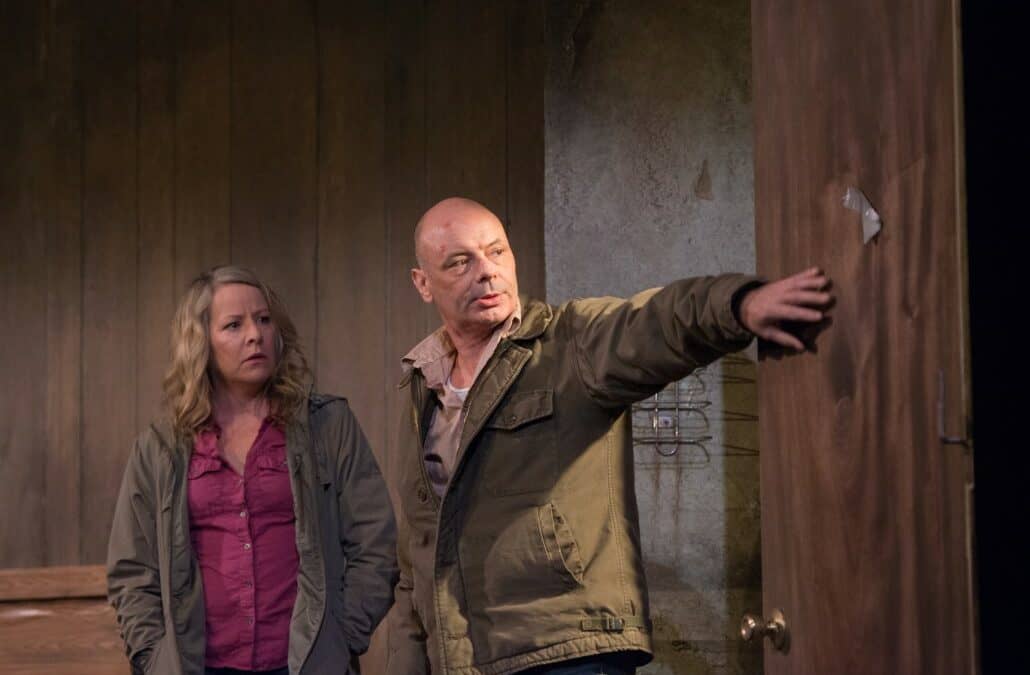
Scofflaw Playwriting, Standout Acting: ON CLOVER ROAD at Contemporary American Theater Festival
The action, from the shadowy world of religious cults and deprogrammers, takes place in the ruins of a derelict motel, where distraught mother Kate (Tasha Lawrence) has been brought by Stine (Lee Sellars), a supposed specialist in reuniting abandoned parents with cult-brainwashed youngsters. Stine intends (so he says) to abduct Kate’s daughter from the cult’s commune and work with her here. The shockingly scuzzy room tells us immediately is that something is terribly wrong with Kate and Stine’s scheme. So does a financial fact revealed in the early going. In the course of the play, we find out what that something and several other somethings are.
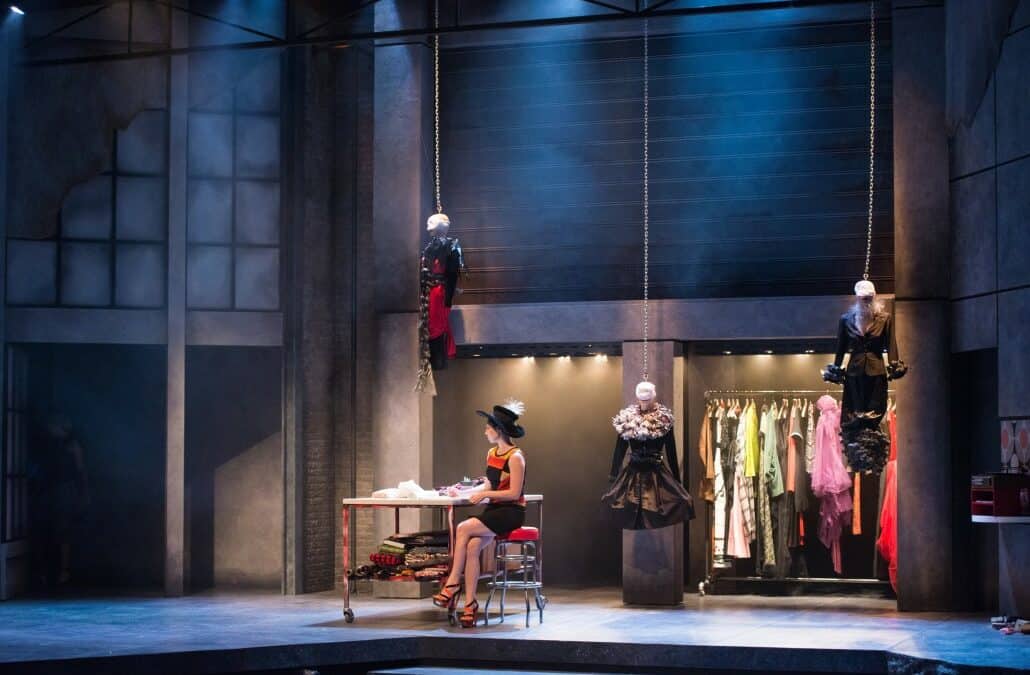
A Fashion-Tinged Shaggy Dog Story: EVERYTHING YOU TOUCH at Contemporary American Theater Festival
The overall effect is a bit like a fireworks display, with loud fun things happening more or less continually. It is not profound, a quality seldom looked for in shaggy dog stories, but the tale at its heart, a whimsical family drama, is sturdy enough, and perhaps the place where a more genuine feminism is lurking than may be found in the odd evocation of fashion.
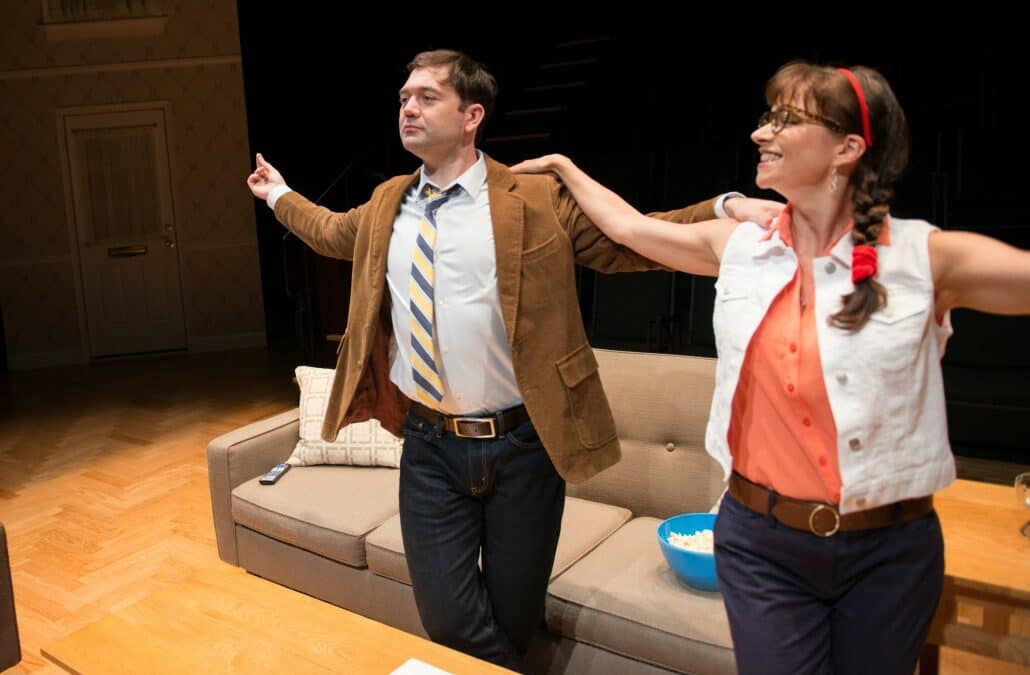
Linguistic Marriage Counseling and Character Acting in a Comic Soufflé: THE FULL CATASTROPHE at Contemporary American Theater Festival
For a weightless and elegant good time, it would be hard to beat The Full Catastrophe, by Michael Weller, at the Contemporary American Theater Festival. There is not one thing in the story to tether it to reality, or trouble us with any true sense of its characters being in any kind of jeopardy, and the presentation of the whole farrago, under Ed Herendeen’s direction, is smooth and amiable. This play is best consumed at the end of one’s visit to this year’s Festival, after sampling the weightier and more nutritional fare.
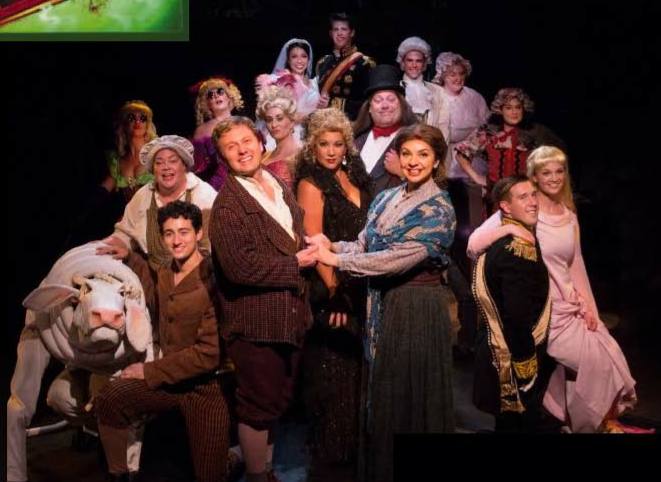
Strong Production, Profound Show: INTO THE WOODS at Toby’s
The characters are all compelled by circumstances to go back into the woods, and this time they encounter there such things as infidelity, divorce, the death of parents, the death of children, abandonment, catastrophe – and overarching this the absence of a narration (the narrator becomes a casualty) or any other authoritative guidance as to the choices that need to be made. As one of the characters observes: ‘The path has strayed from you.’ The unsettling conclusion: ‘You decide what’s right / You decide what’s good.’ This is all incredibly sad and confusing, not to mention frightening, and yet as the core of surviving characters gels, so does the indomitability of the human spirit they evince.
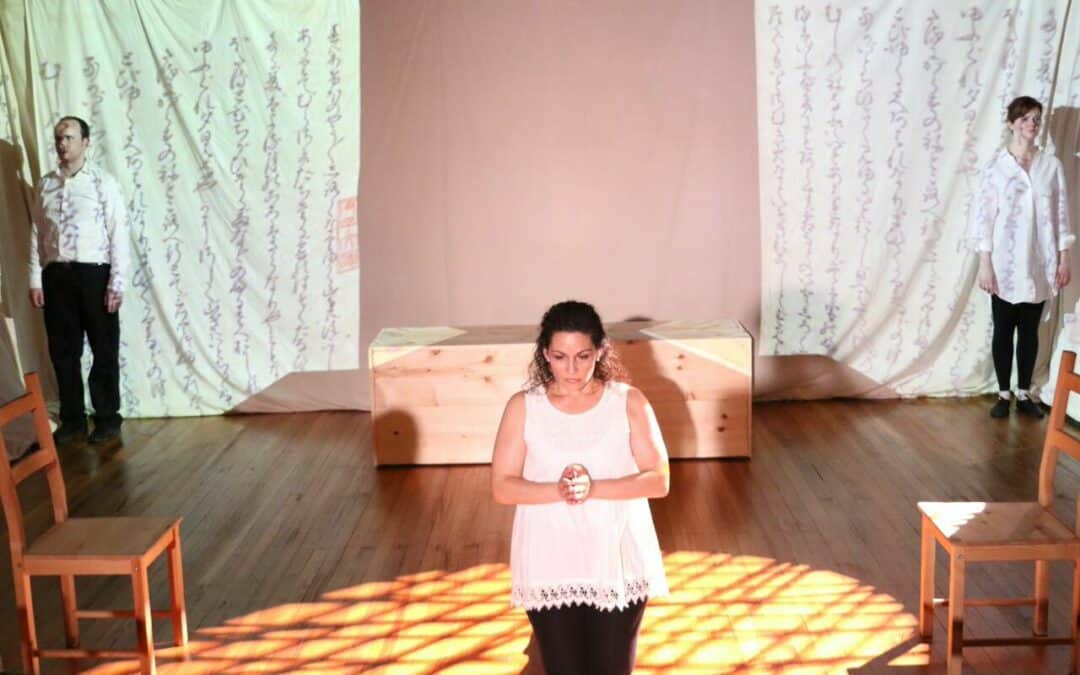
Shredded Storytelling Undermines THE PILLOW BOOK at Cohesion/Strand
The Pillow Book takes off from the current vogue of non-consecutive story-telling; everyone wants to emulate the mystification of Pulp Fiction, with its sudden reveals of not only what will happen, but of what did happen. And recently there has been an additional vogue, which I call Cubistic story-telling, in which the characters and their lives turn out multiple ways, without an authoritative single story line. The approaches can also be combined. Such works always make the viewer struggle to follow the conflicting and shuffled storylines, but seldom leave the viewer in the dust. The dust, however, is where Anna Moench’s The Pillow Book will leave you. The more is the pity. Anna Moench writes beautifully, and the acting and directing in this collaboration of two interesting fringe companies is uniformly good. But the conflicting storylines shred each other.

 I lived in London and Vienna before coming to the United States, and grew up mainly in Ann Arbor. I was writing plays and stories as early as grade school. My undergraduate years at the University of Pennsylvania, where I first reviewed theater, for the college paper, were succeeded by graduate study at the Johns Hopkins University, where I earned a doctorate in English Literature.
I lived in London and Vienna before coming to the United States, and grew up mainly in Ann Arbor. I was writing plays and stories as early as grade school. My undergraduate years at the University of Pennsylvania, where I first reviewed theater, for the college paper, were succeeded by graduate study at the Johns Hopkins University, where I earned a doctorate in English Literature.